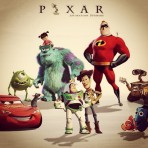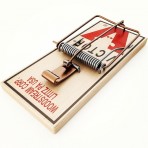Twitter Summary: Has the thing you love to do become the thing you do well?
Principle
For my final post on Ken Robinson’s book The Element I want to clearly explain what Robinson means when he asks, what is your element? Robinson starts off his book by writing, “My aim in writing [this book] is to offer a richer vision of human ability and creativity and of the benefits to us all of connecting properly with our individual talents and passions…I use the term the Element to describe the place where the things we love to do and the things we are good at come together.”
In other words, your element is when the things you love to do become the things you do well.
Robinson gives three reasons why people struggle to identify their individual element. First, people don’t know themselves well enough. Second, people don’t understand their true potential to do amazing things. Third, people don’t understand their capable of constant growth.
Lastly, Robinson points out that many of us generally know what we’re passionate about and would rather be doing with our lives, but we give it up for the sake of financial security. We find ourselves settling for less than what could make us truly happy.
Making Connections to What Is Your Element
At a very young age I knew I loved music. I have fond memories of my mom playing the piano in the living room while me and my siblings fell asleep or my dad teaching me chords on the guitar. I clearly remember moments with certain songs that stirred deeply emotions within me, like Pearl Jam’s song Rearview Mirror or Bob Marley’s album Legend or Sublime’s self-titled album. It was clear to me at a young age that I love music.
I’ve been lucky that it’s been so clear to me. Because of that, I’ve been able to become good at my passion through school and that practical use of my skills. I feel like I truly know my element because I believe I have become good at what I love to do.
I realize this is rare, but it shouldn’t be.
So What?
If you don’t already know what you’re passionate about, ask yourself a few simple questions. When you have free time from your other responsibilities, what do you find yourself doing most? If you lost everything, what would you still find yourself doing?
Once you identify that, the next part is “work.” To become good at that passion requires diligent effort, but if you’re like most people who’ve found their passion, it’s not work. It’s play.
I encourage you to find the thing that would never be considered “work” for you, to find your true element, and diligently become good at it.
Questions for you: Do you already know what your element is? What is it? Have you found it hard to identify your element? Why?
Next Weeks Post: I’ll be starting posts for a new book, The E-Myth. Next week I’ll introduce the posts and ideas I intend to share.








When I was living in NYC I had a few part-time jobs to make ends meet. One of them was working at a video store, the other was a respite attendant position with a student with muscular dystrophy at Hunter College. In one of my client’s classes, his professor, an out of work theatre critic ranted about the neglect of the arts, more or less bitching about how people like him are under appreciated. And his only audience, a bunch of groggy students who were forced to listen. He said, “for most of you, you will have to choose between what you are passionate about and what type of lifestyle you want to live.”
It put a lot of things into perspective. I was listening to a lot of motivational speaking tapes at the time; mostly Tony Robbins stuff. At the time my passion was clear, playing in a punk band with my friends. I was dedicated to finding a way to do it for a living. Working at a video store was fine at the time because it allowed me ample time to hone my craft. That lasted less than a year. It soon dawned on me that the thing that was most important in my life for 5 years I no longer care for. Working at the video store became daunting almost over night. More than being broke, I had lost my identity. I was no longer a struggling artist with a cause, I felt like I was just a loser at a video store. I lost my perspective. I lost site of the fact that I had a job, a place to live, food, friends, my health, my youth, infinite opportunities, etc. Appreciation of all things can help you to overcome sadness. Seeing the power of the ebbs and flows. It has nothing to do with positive thinking. Imagine where you would be in life if there were no challenges. Biologically, I think men are competitors, whether it be with themselves or others. But all those things can get thrown out the window if you lose your identity.
Tony Robbins posed the question, “If you never had to work or worry about bills ever again, what would you do today?” No one in the crowd (most of whom were Westerners) could answer. They all discovered that they were too distracted with the daily grind to think about it. Tony realized at a young age that his passion was helping people and that money was a side bar to all of that. He could help people today, he didn’t need money to do so. He needed money to eat. Which is highly important. Through that drastic change of perspective he was able to find peace, and recognized his gift of motivational speaking. He turned that into a business. He provided very simple answers to people and was very effective. In the process he made millions and helped people at the same time. I believe we are in constant flux. I went from only caring about skateboarding at 15 to only caring being in a band till I was 25 then I was lost. Now at 33, my identity is “Follower of Jesus”. It feels right. And suddenly not much else matters. That’s journey and some of my opinions. Thanks for letting me share.
Again, great comment Lyle. Tony Robbins is one of the first to really pose the question along the lines of, if everything else went south, what would you still do with your life? For most people, that’s the answer to, “what am I passionate about” or “what am I good at?” And you’re right, a lot of us have no clue what the heck that is. I think childhood and teenage years would be best spent if we were effective guided to know the answers to that question instead of focusing on degree achievement, common core education, or specific GPAs. Instead, we find ourselves wandering without guidance trying to figure it out as best we can ourselves.
Mark,
You’ve found your element. Are you trying now to make it your sole source of income or do you not care about that?
Just curious.
Rob
*sorry, “Marc” not “Mark” ***
Thanks Rob! I’ve really loved delving into this project and have a ton of ideas of where it can and will go. I plan for this and a few other ideas to hopefully be the foundation of how I provide for my family in the near future. As long as I keep providing people value, I’m sure we’ll make it work!